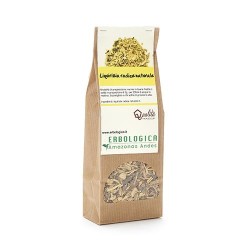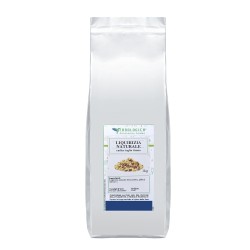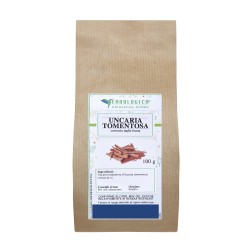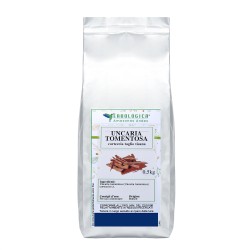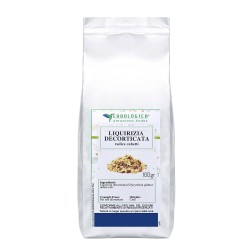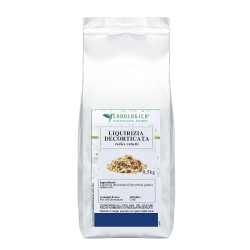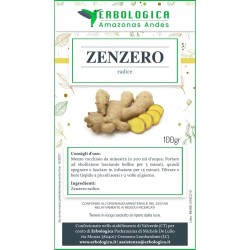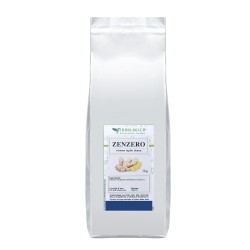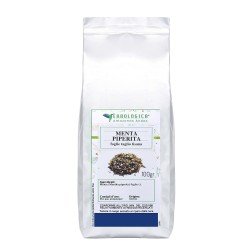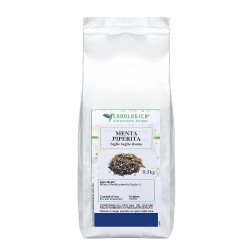Erbe officinali tradizionalmente utilizzate in inverno
Erbe e tisane naturali da utilizzare durante i mesi più freddi
Durante l’inverno il corpo affronta ritmi diversi, temperature più basse e giornate più intense.
Per questo molte persone scelgono di accompagnare la stagione fredda con gesti semplici, come bere tisane calde o utilizzare erbe officinali nella routine quotidiana.
Nella tradizione erboristica, alcune piante sono da sempre associate ai mesi invernali e vengono utilizzate soprattutto sotto forma di infusi e bevande calde.
Tisane calde nella routine invernale
Nei mesi freddi, una tisana calda diventa un momento di pausa e comfort.
Alcune erbe vengono tradizionalmente utilizzate in inverno proprio per preparare bevande aromatiche, da bere lentamente durante la giornata o la sera.
Il timo è spesso scelto per il suo profumo intenso, ideale nelle giornate fredde.
La salvia viene utilizzata nelle bevande calde stagionali per il suo gusto deciso.
Lo zenzero, grazie al suo sapore speziato, è molto apprezzato nelle tisane invernali e nelle bevande calde.
La menta viene aggiunta per rendere la tisana più equilibrata e piacevole al palato.
Per approfondire puoi leggere l’articolo Tisane invernali le migliori erbe e spezie per proteggersi dal freddo
Nel nostro shop online trovi timo volgare foglie e fiori taglio tisana, salvia foglie taglio tisana, zenzero in polvere e menta piperita foglie tisana in versione sfusa, ideali per l’uso quotidiano, disponibili nei formati 100 g, 500 g e 1 kg.
Erbe della tradizione erboristica nei mesi freddi
Alcune piante sono storicamente legate all’inverno e vengono utilizzate nella tradizione erboristica soprattutto nei periodi più freddi dell’anno.
L’echinacea pallida radice tisana è una delle piante più conosciute nella tradizione invernale, spesso inserita nelle tisane stagionali.
L’uncaria tomentosa corteccia viene utilizzata da tempo in preparazioni erboristiche legate ai mesi freddi.
La Rosa canina frutti senza semi tisana, con i suoi frutti, è molto apprezzata nelle tisane invernali per il suo utilizzo tradizionale e il gusto leggermente acidulo.
Le foglie di ribes nero vengono spesso abbinate ad altre erbe stagionali per creare infusi equilibrati.
Per una panoramica più ampia sulle piante stagionali puoi approfondire qui :Le 11 erbe officinali per l'inverno
Tutte queste erbe sono disponibili su erbologica.it come materie prime selezionate per l’uso erboristico, acquistabili nei formati 100 g, 500 g e 1 kg.
Gusto e comfort nelle bevande invernali
In inverno il piacere di una tisana passa anche dal gusto e dall’aroma.
Alcune piante vengono utilizzate per rendere le bevande più morbide, rotonde e piacevoli da bere, soprattutto la sera.
La liquirizia viene tradizionalmente usata per addolcire le tisane in modo naturale.
L’erisimo è apprezzato per il suo utilizzo stagionale e il sapore delicato.
La piantaggine lanceolata viene spesso inserita nelle miscele invernali come pianta di accompagnamento.
Nel nostro assortimento trovi liquirizia radice naturale, erisimo taglio tisana e piantaggine maggiore foglie taglio tisana in forma sfusa, perfette per creare tisane personalizzate e armoniose, disponibili nei formati 100 g, 500 g e 1 kg.
Una soluzione pratica da integrare ogni giorno
Oltre alle tisane preparate in casa, durante l’inverno molte persone cercano soluzioni pratiche da utilizzare ogni giorno, anche quando il tempo è poco.
Il ginseng coreano in tè solubile è apprezzato per la sua praticità e per la facilità di inserimento nella routine quotidiana dei mesi freddi.
Nel nostro shop online è disponibile il ginseng coreano in 50 bustine monodose, pensate per un utilizzo semplice e veloce durante la stagione invernale.
Domande frequenti
Le erbe officinali sostituiscono i farmaci?
No, le erbe officinali sono un supporto naturale e non sostituiscono terapie mediche.
Quante tisane si possono bere al giorno?
In genere una o due tazze al giorno, salvo diverse indicazioni.
Si possono combinare più erbe insieme?
Sì, è preferibile scegliere combinazioni semplici e ben bilanciate.
Le erbe sono adatte a tutti?
In caso di condizioni particolari o terapie in corso è sempre consigliabile chiedere il parere di un professionista.
Contenuto esclusivo per erbologica.it – aggiornato dicembre 2025


